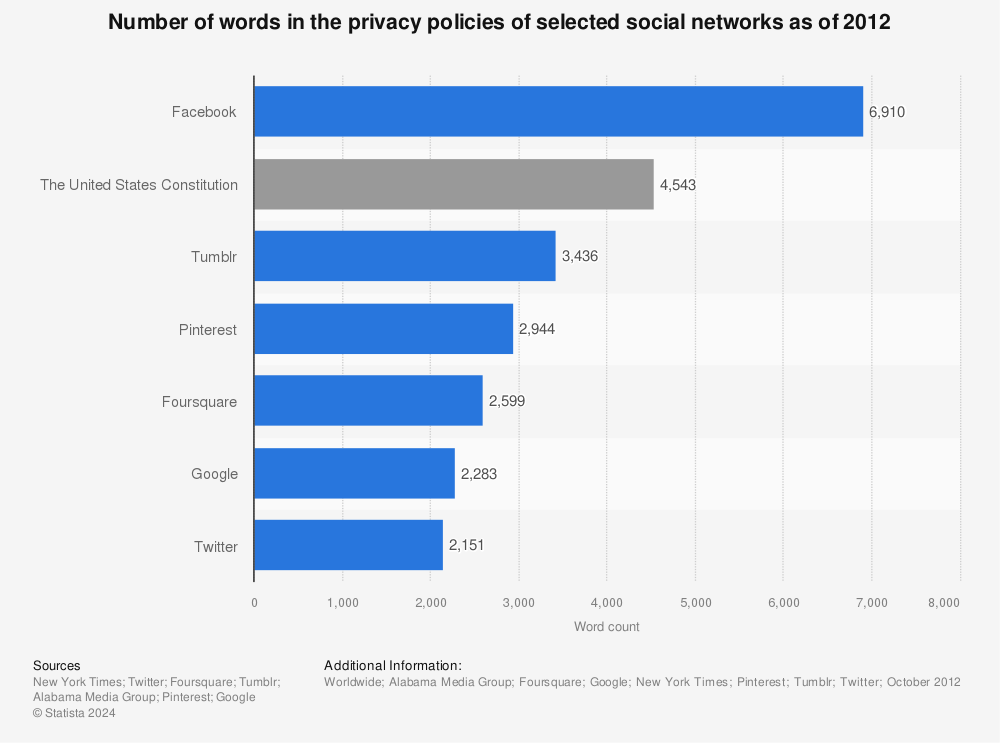The use of social media is increasing at an alarming rate. It connects people around the globe, making it a fast and easy way to stay connected. The increased use of social media also extends to businesses, as it is an excellent marketing tool. However, the irresponsible use of social media can do serious damage to a business, which is why having an effective media policy in place is essential.
As social media marketing becomes more commonplace, having a social media policy isn’t an option anymore, but a necessity. This policy is a highly detailed document that highlights how people within an organization should use social media on behalf of a company. It is a tool that can be used to educate employees on how they should be using social media, both professionally and personally. This policy also shields a company from the damages that can occur as a result of misusing social media channels. Basically, a social media policy outlines the best practices for social media use.
If you haven’t set up a social media policy, you should make it one of your top priorities. How do you go about creating a policy? Here are some tips that will help you establish a policy for your social media channels.
Don’t Attempt to Create it Alone
You should avoid writing your social media policy on your own. You want to make sure that all parties that it will apply to are involved in its creation, as your policy will be unique to your organization. As such, you should take input from various people into consideration when developing your policy. Additionally, involving your team ensure that all key areas of risk are properly addressed and managed, and that any future challenges that could arise will be handled properly.
Establish the Purpose of the Policy
First and foremost, you should establish the purpose for the policy. Why are you creating it? What should the reader take away from it? Generally, the reason for creating a social media policy is to underline what people within your company should and shouldn’t be doing. In other words, it should highlight what types of actions are expected and deemed appropriate, and what actions are considered unacceptable and inappropriate. You want to make sure that the people who the policy applies to thoroughly understand its purpose and what it states.
Take Legal Ramifications Into Consideration
There have been a lot of legal cases surrounding social media use in recent years, and the majority of these cases are related to labor relations. It used to be that organizing employees was something that occurred in person or over the phone. However, thanks to social media, it now also occurs online. Employees have the right do talk about conditions related to their work with their co-workers. As such, even a casual conversation about work-related conditions that occurs on Facebook could be legally protected. With that said, make sure that you exercise caution when it comes to telling your employees what they can and can’t do on the social media sites that they use for personal use, as doing so can backfire, and in a big way.

Find more statistics at Statista
Distinguish Between Overall Policies and Guidelines
The social media landscape is constantly evolving. If your policies are specifically and narrowly focused on a particular social media channel, it’s pretty much guaranteed that they will be out of date in no time. Generally speaking, your policy should focus on the larger picture. This should include who does what, a basic overview of how what they do can and can’t be done, and why what they are doing is done at all.
You should also establish separate guidelines in order to document the specifics of a particular social media channel. Such guidelines can help immensely in regard to staff turnover. Creating separate guidelines will also help your staff more clearly understand what is expected, and better explain what they are doing and how they are doing it.
Piggyback on Other Policies
You probably already have several internal policies in place that apply to social media activities on behalf of your company. For example, you likely have policies regarding privacy, consent for photos that are used, the use of the Internet and cell phones, as well as several other things.
Incorporate External Regulations
The majority of legal regulations, such as the fair employment act and HIPPA are effective both off- and online. Make sure that you highlight these regulations in your social media policy to ensure that your employees adhere to them. Whenever possible, provide detailed examples of what type of behavior is deemed unacceptable as per these regulations.
Focus on Education
Though boundaries between personal and professional lives exist, often, those boundaries become blurred. A lot of employees don’t realize the issues that may arise as a result of decreased privacy. It’s becoming increasingly difficult to keep things private, which means that inappropriate actions that are made on behalf of an employee can be shared on social media and ultimately mar the reputation of a brand and a company. Often, this happens because your employees simply don’t know what they are expected to and not expected to do.
Be sure to focus on educating your employees so that they are aware that their actions could potentially be linked to your company, which could not only hurt your company, but it could also hurt them.
Frequently Review Your Policy
As we’ve already said, the climate on social media is ever-changing. As such, you should frequently review your social media policy. Doing so will ensure that you are current with the new trends and that your company – and your employees – are safeguarded.
